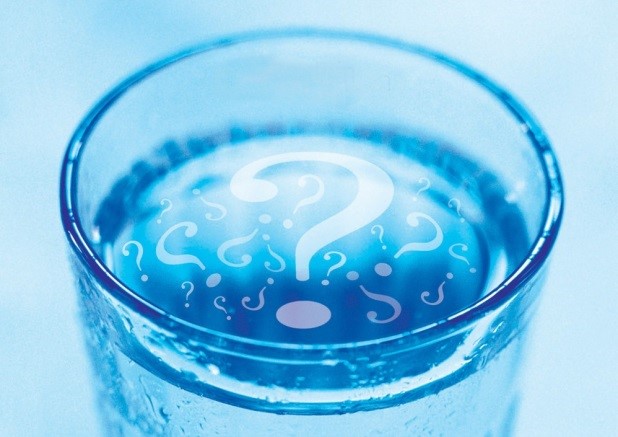Contaminants

Microorganisms
Bacteria, viruses, parasites, and other microorganisms are pollutants that are sometimes found in water. Shallow wells — those with water close to ground level — are at most risk. Runoff, or water flowing over the land surface, may pick up these pollutants from wildlife, human activity, and soils. This is often the case after flooding. These pollutants are found in human and animal wastes.
Nitrates
Although high nitrate levels are usually due to human activities, they may be found naturally in groundwater. They come from the breakdown of nitrogen compounds in the soil where groundwater picks them up. Drinking large amounts of nitrates is particularly threatening to infants (for example, when mixed in formula). This is due to nitrates causing “blue baby” syndrome, a condition that disrupts oxygen flow in the blood, in very young infants.
Heavy Metals
Underground rocks and soils may contain a variety of heavy metals such as arsenic, cadmium, chromium, lead, and selenium. Missouri has mined/produced the majority of lead in the United States since the early 1800’s. Lead can be found in groundwater in certain areas of Missouri due to naturally occurring lead deposits and from past and present lead mining and associated operations. Zinc also has a rich mining history in Missouri as it is produced as a byproduct of lead mining. Missouri remains the second largest producer of zinc in the United States. If you live in an area that is currently being mined or has a history of mining, DHSS recommends having your water tested for metals. For more information regarding various mining activities in Missouri, see the Missouri Department of Natural Resources (DNR) webpages below.
- Lead Mining in Missouri
- Industrial and Metallic Mineral Mine Sites in Missouri
- Missouri Mining Maps
- Missouri Barite Mining
For more information on lead, see the DHSS Lead Fact Sheets and Brochures.
Household plumbing materials are a common source of lead and copper in home drinking water. Corrosive water may cause metals in pipes or soldered joints to leach into your tap water. The age of plumbing materials — in particular, copper pipes soldered with lead — is also important. Your water’s acidity or alkalinity (often measured as pH) greatly affects corrosion. Temperature and mineral content of the water also affect how corrosive the water is.
Arsenic
Arsenic has been found to be naturally occurring in Missouri and was once used as a pesticide in some older fruit orchards.
Fluoride
Fluoride has been found to be naturally occurring in some groundwater sources in Missouri. Some fluoride is beneficial, either naturally or when added to public water supplies. However, excessive consumption of naturally occurring fluoride can damage bone tissue and cause teeth discoloration. For more information regarding water fluoridation, see Oral Health.
Fertilizers and Pesticides
Farmers use fertilizers to promote plant growth and pesticides to reduce insect damage. These products are also used on golf courses and home lawns and gardens. The chemicals in these products may get into groundwater, especially if misapplied. For more information regarding the regulation of pesticides in Missouri, see the Missouri Department of Agriculture site.
Industrial Products and Wastes
Many chemicals are used widely in local business and industry. These can become drinking water pollutants if not well managed. For more information regarding chemical contamination and hazardous waste sites, visit our webpage.
Household Wastes
Improper disposal of many common products can pollute groundwater. These include cleaning solvents, used motor oil, paints, and paint thinners. Even soaps and detergents can harm drinking water. For more information regarding household waste management, reduction and disposal, see EPAs webpage.
